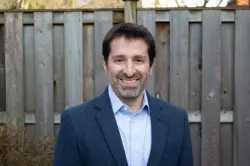

2:00 pm EST - 4:15 pm EST
Past Event
2:00 pm - 4:15 pm EST
1775 Massachusetts Avenue N.W.
Washington, DC
20036
February 24 will mark the anniversary of Russia’s brutal full-scale invasion of Ukraine. While Ukrainian resistance to the invasion — backed by political support and weaponry from the United States and its allies and partners — has proven extraordinarily effective in limiting Russian gains, the human and economic costs of the war for Ukraine remain massive amidst continued Russian bombing. Where is the open war between the two countries heading as it enters its second year? Should the United States and Europe modify their policy approaches to the conflict – and how? How might the new Congress in the United States change Washington’s approach? And what are the consequences of this war for international order and security, not only in Europe, but also in Asia and other parts of the world?
On Tuesday, February 7, the Strobe Talbott Center on Security, Strategy, and Technology and the Center on the United States and Europe convened a set of discussions on the state of the conflict, how that might and should change in the coming year, and the wider ramifications for international order and security.
Viewers submitted questions by emailing [email protected] or via Twitter @BrookingsFP by using #RussiaUkraine.
2:00 pm - 2:05 pm
2:05 pm - 2:35 pm
2:35 pm - 3:25 pm
Moderator

Panelist



3:25 pm - 4:15 pm
Moderator

Panelist



Constanze Stelzenmüller, Fred Dews
May 3, 2024
2024
The Brookings Institution, Washington DC
10:30 am - 11:30 am EDT

Melanie W. Sisson
May 1, 2024